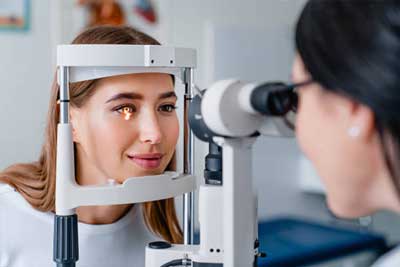
Image Source: Google
Glaucoma is a leading cause of irreversible blindness worldwide, affecting millions of people. As researchers continue to explore new treatment options and care strategies, clinical studies play a critical role in advancing our understanding of this complex disease. These studies, often involving collaborations between researchers, healthcare providers, and patients, are essential in translating scientific discoveries into practical results that can improve patient outcomes.
Through a combination of rigorous scientific research and real-world clinical practice, glaucoma clinical studies are redefining the way we diagnose, treat, and manage this sight-threatening condition.
One of the key ways in which glaucoma clinical studies are reshaping care is by identifying new biomarkers for early detection and monitoring of the disease. By analyzing genetic markers, imaging data, and other biological indicators, researchers can develop more accurate diagnostic tools that enable earlier detection of glaucoma.
This early detection is critical in preventing vision loss and guiding treatment decisions to preserve patients' eyesight. Through these studies, clinicians are able to identify high-risk individuals who may benefit from early intervention, ultimately leading to better outcomes for patients.
In addition to early detection of glaucoma clinical studies are also exploring innovative treatment approaches that offer new hope for patients with this condition. Traditional treatments for glaucoma focus on lowering intraocular pressure to slow the progression of the disease. However, not all patients respond well to these treatments, and some may experience side effects or complications.
Through clinical studies, researchers are investigating novel therapies such as gene therapy, stem cell therapy, and neuroprotective agents that target different aspects of the disease process. These cutting-edge treatments have the potential to revolutionize glaucoma care by providing more personalized and effective options for patients.
Furthermore, glaucoma clinical studies are helping to optimize the management of the disease by evaluating the effectiveness of different care pathways and interventions. By comparing the outcomes of patients receiving different treatments or undergoing various monitoring protocols, researchers can identify best practices that improve patient outcomes and quality of life. These studies also inform guidelines and protocols that guide clinicians in delivering evidence-based care that is tailored to each patient's unique needs. By integrating the latest research findings into clinical practice, healthcare providers can ensure that patients with glaucoma receive the most advanced and effective care available.
Another important way in which glaucoma clinical studies are transforming care is by involving patients as active participants in the research process. Patient engagement is essential for developing research questions that are relevant to the lived experience of individuals with glaucoma and ensuring that study findings are translated into meaningful improvements in care.
By collaborating with patients in study design, recruitment, and dissemination of results, researchers can better address the needs and preferences of the glaucoma community. This patient-centered approach not only enhances the quality and relevance of research but also empowers patients to take an active role in managing their own health.
As glaucoma clinical studies continue to push the boundaries of knowledge and innovation, it is essential for all stakeholders – including researchers, clinicians, patients, and policymakers – to work together to translate research findings into meaningful results that benefit patients.
By fostering collaborations and partnerships across disciplines and sectors, we can accelerate the pace of discovery and bring new advancements in glaucoma care to the forefront. Through ongoing research and clinical studies, we can ensure that patients with glaucoma receive the best possible care and support to preserve their vision and enhance their quality of life.
In conclusion, from research to results, glaucoma clinical studies are playing a vital role in redefining care for individuals with this debilitating condition. By driving innovation, optimizing treatment approaches, and engaging patients as partners in the research process, these studies are transforming the landscape of glaucoma care and paving the way for a brighter future for patients worldwide.
As we continue to make strides in understanding and managing glaucoma, it is crucial to support and prioritize research efforts that will ultimately improve outcomes and quality of life for individuals living with this sight-threatening disease.
